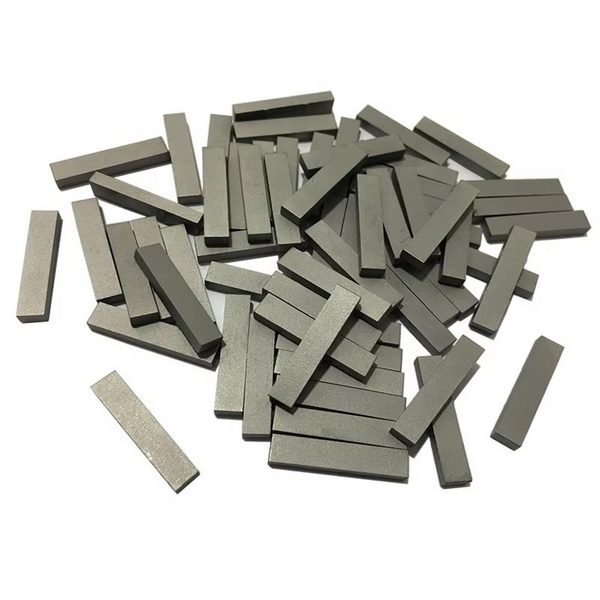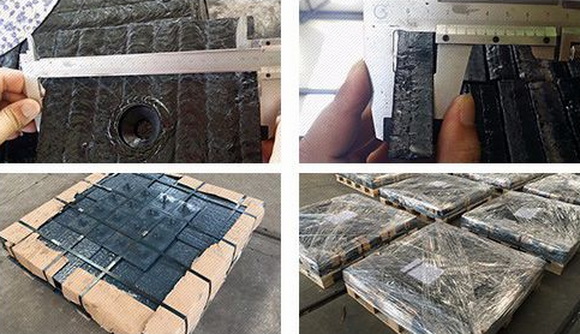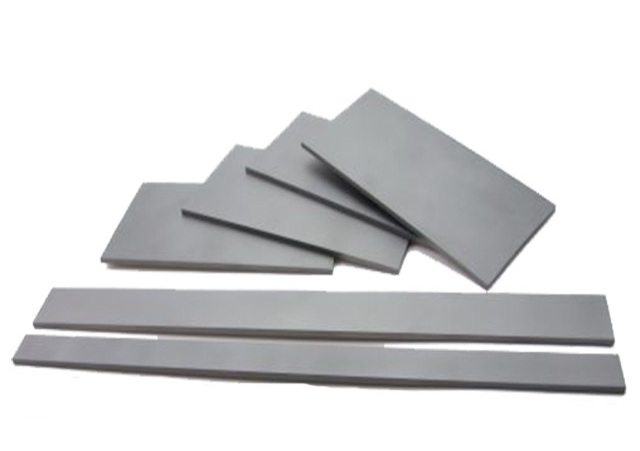Content Menu
● Introduction to Union Carbide
>> Key Products and Applications
>>> 1. Ethylene and Polyethylene
>>> 2. Ethylene Glycol
>>> 3. Isopropanol
>>> 4. Ethyleneamines
>>> 5. UCON Fluids
>>> 6. Surfactants
>>> 7. Deicing and Anti-icing Fluids
>>> 8. Amines
>>> 9. Polyethylene Glycols
>>> 10. Tungsten Carbide Products
>>> 11. Silicone Products
>>> 12. Specialty Chemicals
● Impact of Union Carbide Products
>> Challenges and Controversies
>> Expansion and Innovation
>> Sustainability Initiatives
>> Future Directions
● Conclusion
● Frequently Asked Questions
>> 1. What are the primary products of Union Carbide?
>> 2. How does Union Carbide contribute to the automotive industry?
>> 3. What role do Union Carbide products play in pharmaceuticals?
>> 4. What is the significance of the Bhopal disaster in Union Carbide's history?
>> 5. Is Union Carbide still an independent company?
● Citations:
Union Carbide, a renowned American chemical company, has been a pivotal player in the development and production of a wide range of chemical products. These products have diverse applications across various industries, including paints and coatings, packaging, wire and cable, household products, personal care, pharmaceuticals, automotive, textiles, agriculture, and oil and gas. This article will delve into the main applications of Union Carbide products, highlighting their significance and impact on different sectors.

Introduction to Union Carbide
Union Carbide was founded in 1917 as the Union Carbide and Carbon Corporation, emerging from the merger of several companies involved in the production of acetylene gas and other carbon products. Over the years, the company has evolved significantly, becoming a leading figure in the petrochemical industry. Its researchers developed an economical method to produce ethylene from natural gas, laying the foundation for the modern petrochemicals industry.
Key Products and Applications
1. Ethylene and Polyethylene
- Ethylene is a basic building block used to produce polyethylene, ethylene oxide, and ethylene glycol.
- Polyethylene is widely used in packaging materials, such as plastic bags and containers, and in the production of toys and other consumer goods.
2. Ethylene Glycol
- Used in automotive antifreeze, ethylene glycol is crucial for maintaining vehicle engines during extreme temperatures.
- It is also used in the production of polyester fibers and films.
3. Isopropanol
- Commonly known as rubbing alcohol, isopropanol is used in medical applications for disinfection and as a solvent in various industrial processes.
4. Ethyleneamines
- These are used to enhance the wet strength of paper products, such as paper towels.
5. UCON Fluids
- UCON fluids, produced by Union Carbide, are polyalkylene glycol fluids used as lubricants in automotive brake systems and vacuum pumps.
6. Surfactants
- Used in industrial cleaning processes for soil removal and in personal care products for their cleansing properties.
7. Deicing and Anti-icing Fluids
- Essential for preventing ice buildup on airplanes, these fluids ensure safe flight operations during cold weather conditions.
8. Amines
- Used in oil and gas refining processes to remove impurities, contributing to cleaner fuel production.
9. Polyethylene Glycols
- These are used in pharmaceutical applications to make tablets and pills easier to swallow.
10. Tungsten Carbide Products
- Union Carbide also produces tungsten carbide products that are essential for cutting tools used in machining operations across various industries.
- Tungsten carbide is known for its hardness and resistance to wear, making it ideal for mining tools and drilling applications.
11. Silicone Products
- Union Carbide manufactures silicone-based products that are widely used in sealants, adhesives, and coatings.
- These products provide excellent thermal stability and resistance to moisture.
12. Specialty Chemicals
- The company produces specialty chemicals that serve niche markets such as electronics manufacturing and agricultural chemicals.
- These chemicals often have specific formulations designed to meet unique performance requirements.

Impact of Union Carbide Products
Union Carbide's products have a profound impact on various industries:
- Packaging and Consumer Goods: Polyethylene and polypropylene are crucial for packaging materials and consumer products like toys and kitchen utensils.
- Automotive: Ethylene glycol, isopropanol, and UCON fluids play significant roles in vehicle maintenance and manufacturing processes.
- Pharmaceuticals: Polyethylene glycols enhance the usability of medications by improving their form and texture.
- Agriculture: Chemicals like ethyleneamines and surfactants are used in agricultural applications for crop protection and soil treatment.
- Construction: Silicone sealants are critical for construction applications where moisture resistance is necessary.
Challenges and Controversies
Despite its contributions, Union Carbide has faced significant challenges, most notably the Bhopal disaster in 1984, which remains one of the world's worst industrial accidents. This incident led to substantial legal and financial repercussions for the company. The company's response and subsequent actions have been scrutinized, highlighting the importance of safety and environmental responsibility in industrial operations.
Expansion and Innovation
In recent years, Union Carbide has continued to innovate and expand its product lines. The integration with The Dow Chemical Company in 2001 has further enhanced its capabilities, allowing for more comprehensive solutions across various sectors. This partnership has enabled the development of new technologies and products addressing emerging needs in industries such as renewable energy and sustainable materials.
Sustainability Initiatives
Union Carbide, as part of The Dow Chemical Company, has also emphasized sustainability in its operations. Efforts to reduce environmental impact include improving energy efficiency, reducing waste, and developing products that support sustainable practices. For instance:
- The company has been involved in projects to enhance recycling technologies for plastics, aiming to reduce plastic waste and promote a circular economy.
- Union Carbide is planning to recycle polyethylene wraps and rigid containers which will help increase the quality of recycled plastics while creating new markets for these materials.
- Additionally, they are investing in bio-based feedstocks for producing chemicals traditionally derived from fossil fuels.
Future Directions
As the world moves towards more sustainable practices, Union Carbide's focus on recycling and sustainable materials will be crucial. The company's involvement in developing technologies for recycling plastics will not only reduce waste but also contribute to creating a more circular economy. Furthermore:
- Union Carbide's commitment to safety and environmental responsibility will continue to shape its operations.
- The company aims to invest more heavily into research that focuses on reducing greenhouse gas emissions from chemical production processes.
- Collaborations with universities and research institutions are expected to foster innovation that aligns with global sustainability goals.
Conclusion
Union Carbide products have been integral to the development of modern industries from consumer goods to pharmaceuticals. Their diverse applications highlight the company's innovative approach to chemical production and its impact on global markets. However, the company's history is also marked by significant challenges including environmental safety concerns. As the company continues to evolve its focus on sustainability and innovation will be crucial in addressing future challenges while seizing new opportunities.

Frequently Asked Questions
1. What are the primary products of Union Carbide?
Union Carbide primarily produces chemicals and polymers such as polyethylene, ethylene glycol, isopropanol, tungsten carbide products, silicone-based materials, specialty chemicals which are used across various industries including packaging automotive pharmaceuticals agriculture construction among others.
2. How does Union Carbide contribute to the automotive industry?
Union Carbide contributes through products like ethylene glycol (used as antifreeze) UCON fluids (used as lubricants) ensuring vehicle maintenance efficiency while enhancing performance standards across manufacturing processes.
3. What role do Union Carbide products play in pharmaceuticals?
Products like polyethylene glycols improve medication usability making them easier to swallow while ensuring effective delivery mechanisms enhancing patient compliance with prescribed treatments.
4. What is the significance of the Bhopal disaster in Union Carbide's history?
The Bhopal disaster was a major industrial accident occurring in 1984 resulting not only significant loss of life but also long-term environmental damage leading into profound legal financial implications that shaped future safety regulations within industrial operations globally.
5. Is Union Carbide still an independent company?
No; since 2001 it operates as a wholly owned subsidiary under The Dow Chemical Company umbrella continuing its legacy while benefiting from shared resources expertise across sectors enhancing overall operational capabilities.
Citations:
[1] https://www.unioncarbide.com/products.html
[2] https://www.md-kinney.com/en-it/vacuum/lubricants/ucon-oil
[3] https://www.alamy.com/stock-photo/union-carbide-corporation.html
[4] https://time.com/archive/6833895/corporations-there-is-life-at-union-carbide/
[5] https://en.wikipedia.org/wiki/Union_Carbide
[6] https://www.chemeurope.com/en/encyclopedia/Union_Carbide.html
[7] https://plastiquarian.com/?page_id=14284
[8] https://ntrs.nasa.gov/api/citations/19670016508/downloads/19670016508.pdf
[9] https://www.linkedin.com/pulse/hard-truth-tungsten-carbide-military-applications-less-ethan-clarke-wrk4e
[10] https://www.istockphoto.com/photos/carbide
[11] https://www.shutterstock.com/search/isocyanate
[12] https://www.theatlantic.com/photo/2014/12/bhopal-the-worlds-worst-industrial-disaster-30-years-later/100864/
[13] https://www.shutterstock.com/search/union-carbide
[14] https://www.shutterstock.com/search/union-carbide-building
[15] https://www.uniontool.com/products/tungsten-carbide-end-mills/
[16] https://www.mesothelioma.com/asbestos-exposure/companies/union-carbide/
[17] https://www.bellucklaw.com/new-york-asbestos-companies/union-carbide/
















